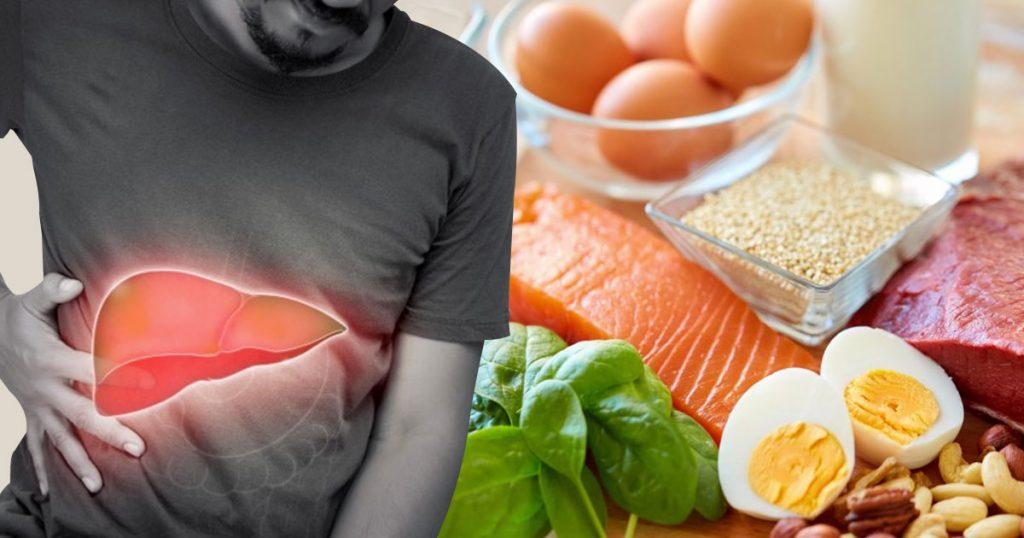The liver is a crucial organ located on the upper right side of your abdomen. It has many important jobs that keep you healthy. These include cleaning harmful substances from your blood, producing bile to help digest food, storing vitamins and minerals, and helping your blood clot when you’re injured. The liver also processes proteins, fats, and carbohydrates, which are essential for energy and nutrients.
A malfunctioning liver can have major consequences for your health. Problems with the liver can cause toxins to build up in your blood, make it hard to digest food, and lower your ability to fight infections. Liver problems can cause jaundice, or yellowing of the skin and eyes, extreme fatigue, and edema in the legs and abdomen. According to a study, liver diseases can significantly disrupt your body’s function and lead to other health problems.
Common liver problems to be aware of include hepatitis, fatty liver disease, cirrhosis, and liver cancer. Particularly, liver cancer is a dangerous illness because of its high death rate and aggressive nature.
What is Liver Cancer?
Liver cancer starts in the cells of the liver. The most common type is called Hepatocellular Carcinoma (HCC). This often happens in people with long-term liver problems like hepatitis B or C and cirrhosis (scarring of the liver).
Symptoms of Liver Cancer
Signs of liver cancer can include:
- Losing weight without trying
- Not experiencing hunger
- Pain along the upper abdomen
- Feeling sick and throwing up
- Skin and eyes turning yellow (jaundice)
Causes of Liver Cancer
Several things can cause liver cancer, such as:
- Long-term infections with hepatitis B or C
- Cirrhosis
- Certain inherited liver diseases
- Diabetes
- Liver fat accumulation (also known as nonalcoholic fatty liver disease)
- Eating moldy crops that have aflatoxins (harmful substances from mold)
Treatment for Liver Cancer
Treating liver cancer usually involves a mix of methods:
- Surgery: Taking out the tumor or part of the liver
- Liver transplant: Using a donor’s healthy liver to replace the diseased one
- Chemotherapy: The use of medications to eradicate cancer cells
- Targeted Therapy: Medication designed to target cancer cells specifically
- Radiation Therapy: Using high-energy rays to destroy cancer cells
Treating liver cancer well means looking at the whole picture. This includes not just medical treatments but also taking care of your diet, exercise, and emotional health.
Dietary Strategies for Liver Cancer
What you eat can have a big impact on your health and how well your treatment works if you have liver cancer. The liver is important for processing nutrients and getting rid of toxins. When it is damaged by cancer, it can’t do these jobs as well. This is why it’s important to carefully choose what you eat to help support your liver, keep your energy up, and help your body heal.
Foods You Should Eat
- Lean Proteins: Choose lean proteins like chicken, turkey, fish, eggs, low-fat dairy, nuts, and soy. They support your immune system, keep your muscles strong, and aid in healing.
- Whole Grains: Consume whole grains such as brown rice, whole wheat pasta, oatmeal, and whole wheat bread. They facilitate digestion and offer you energy.
- Colorful Fruits and Vegetables: Eat a mix of colorful fruits and vegetables. They have antioxidants that help fight cancer and keep you healthy.
- Healthy Fats: Include healthy fats from avocados, nuts, seeds, and olive oil. Your body needs these fats to absorb vital nutrients.
- Hydration: Drink plenty of water and other fluids to stay hydrated. This is very important for your liver, especially during treatment.
- Limited Sweets: Avoid sweets and foods with added sugars. These don’t offer much nutrition and can take the place of healthier options.
Foods You Should Not Eat
Certain foods can cause harm if you have liver cancer. Here are foods you should avoid:
- Alcohol: Alcohol can damage your liver more and interfere with your treatments. It’s best to stay away from it.
- Fried and Fatty Foods: Avoid foods high in unhealthy fats, like fried foods, fast food, and fatty meats. These can put extra strain on your liver.
- Sugary Foods and Drinks: Sweets, desserts, and sugary drinks like soda offer little nutrition and can cause weight gain, which isn’t good for your liver.
- High-Sodium Foods: Steer clear of salty foods such as cured meats, canned soups, and processed snacks. Increased fluid retention and swelling can result from excessive salt consumption.
- Raw or Undercooked Seafood: Raw or undercooked seafood can have bacteria and viruses that could be harmful to your immune system.
- Moldy or Spoiled Foods: Stay away from moldy foods, especially grains and nuts, as they can contain harmful substances called aflatoxins.
Overall Health and Liver Cancer Management
- Small, Frequent Meals: Try to eat five or six small meals a day, about three hours apart. This helps you get a steady supply of nutrients and can reduce side effects like nausea.
- Monitor Portion Sizes: Be careful with portion sizes to avoid overeating and make sure you get a balanced diet.
- Consult Healthcare Professionals: Always talk to your healthcare team about your diet. They can give you personalized advice and adjust your diet based on your needs and treatment plan.
Taking care of liver cancer involves more than just medical treatments; you also need to pay attention to your diet and lifestyle. By avoiding harmful foods and eating nutrient-rich options, you can help your liver work better, boost your health, and improve your quality of life. Always work with your healthcare team to create a diet plan that fits your needs and supports your treatment.
